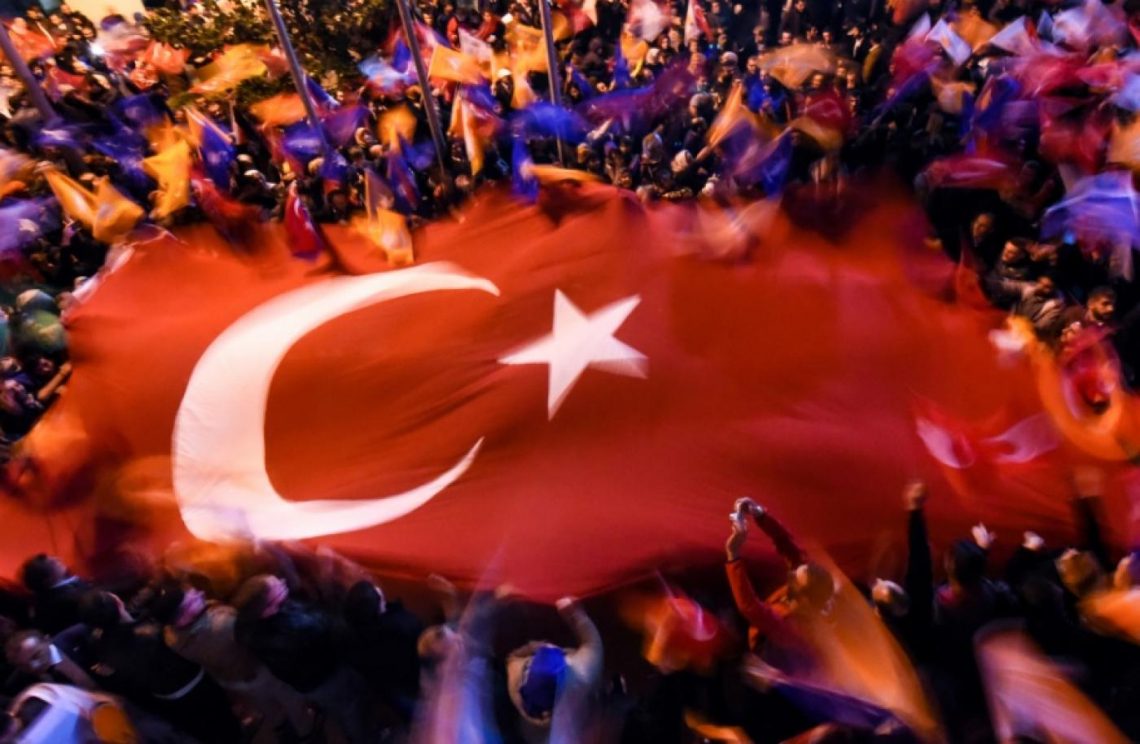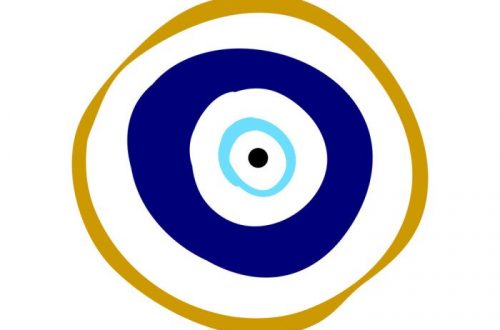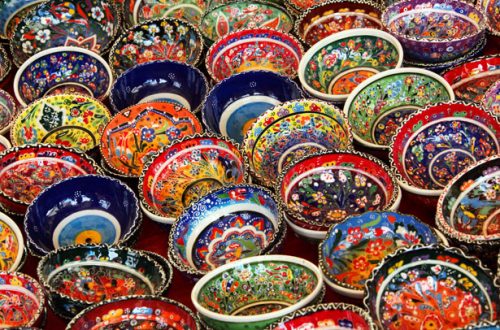
The Turkish flag: Its History & Meaning
The Turkish flag is the best symbol to describe the relationship between the Turks and their country.
Turks are definitely patriots!
And the clearest sign of this is the flag of their country:
It has a red background, white crescent moon and a white star.
The Turkish flag and its meaning
The flag is an indispensable part of everyday life.
It doesn’t matter where you go in Turkey. The flag will accompany you everywhere. It doesn’t matter whether you are on the border of Greece or Iran. You can go to the beach in Antalya or climb the 5,137-meter-high summit of Mount Ararat. She’s there, already waiting for you.
You are walking over an abandoned bridge in the middle of the forest. The Turkish flag hangs on it. You are walking through downtown Istanbul. You will see the flag on almost every street corner!
Dozens of them hang at every gas station in the country. I have come to the conclusion that the petrol station operators have the following logic: “More flags, the greater number of customers”.
There is no other explanation for the number of flags at the petrol station pumps.
Sometimes, Germans feel a little strange about the Turkish national pride which is always on displays. The only event where the flag of Germany appears so often occurs every four years at the soccer world championship.
Why do Turks carry their flag with such pride?
It’s a good question. To answer, you’ll need to know more about the end of the Ottoman Empire and the years that followed.
After World War I ended, the proud former empire was demolished. It was Mustafa Kemal Ataturk who formed the state into what it is now known as Turkey. It wasn’t bloodless.
The emergence of the Turkish Republic and the upswing that followed was a kind of rebirth for the country.
Today’s Turkish flag comes from this time
In the next few weeks, I will be writing a few more posts about Turkish culture. It will also include a biography of Mustafa Kemal Ataturk.
The flag originates from the Ottoman Empire
Its origin depends on one’s point of view. It has clearly recognizable similarities with the flag of the Ottoman Empire due to the crescent moon, the star and the green colour (it was changed to red starting 1844). They also symbolise Islam.
Another interpretation is that the red flag symbolizes a bloody battlefield reflecting the clear light of the moon and the stars looking down.
Whatever the design or the interpretation, one thing is certain:
it has the greatest respect among the people of Turkey. Together with its state founder Mustafa Kemal Ataturk.
Don’t disturb the flag!
Proud Turks almost consider the flag as some type of a religious symbol. By the way, if you insult the Turkish flag or Ataturk in any way, you will get into trouble very quickly. The Turks don’t think it’s the least bit funny!
In the best-case scenario, you can get away with a heavy fine or be expelled from Turkey. In the worst case, “soiling” the flag can result in a prison sentence.
Believe it or not, even the state of flags is monitored. There are penalties for using flags that are dirty, faded, torn with holes or tattered. Incidentally, It is also not allowed to be used on any kind of clothing. That explains why there are no bikinis, swimming trunks or T-shirts with the Turkish flag displayed on it.
Every detail is meticulously attended to. Every public building must carry a flag. Unfurling and mounting the flag must be done respectfully and ceremonially.
Turks are patriots and love their flag
As a German, it is sometimes difficult for me to understand why the Turks are so attached to their flag.
It simply has a different status in Turkish culture. Among other things, the flag stands for the many hardships that the young Turkish state had to go through after the First World War. At the same time, it also represents the economic and cultural rise that the country experienced under its famous leader, Mustafa Kemal Ataturk.
In addition, no historical events took place in Turkey that cast nationalism in such a bad light, unlike in Germany.
What is your opinion of the Turkish flag and Turkish patriotism?




